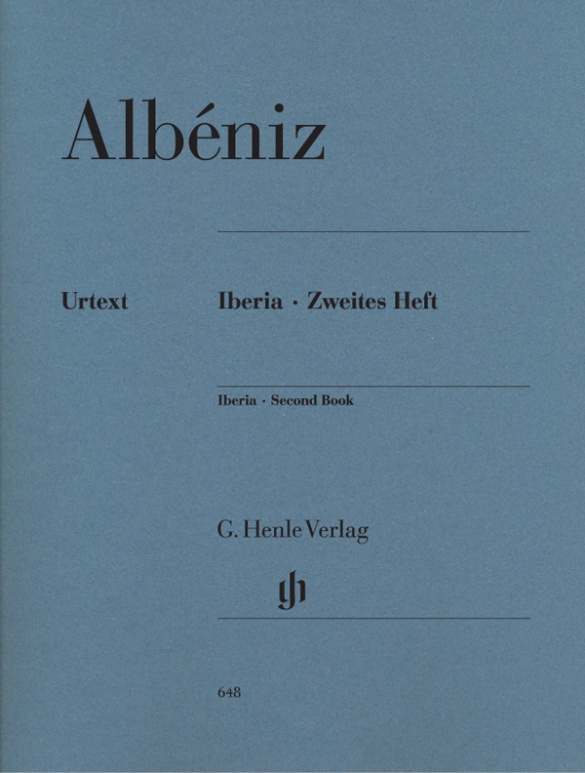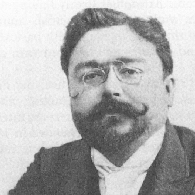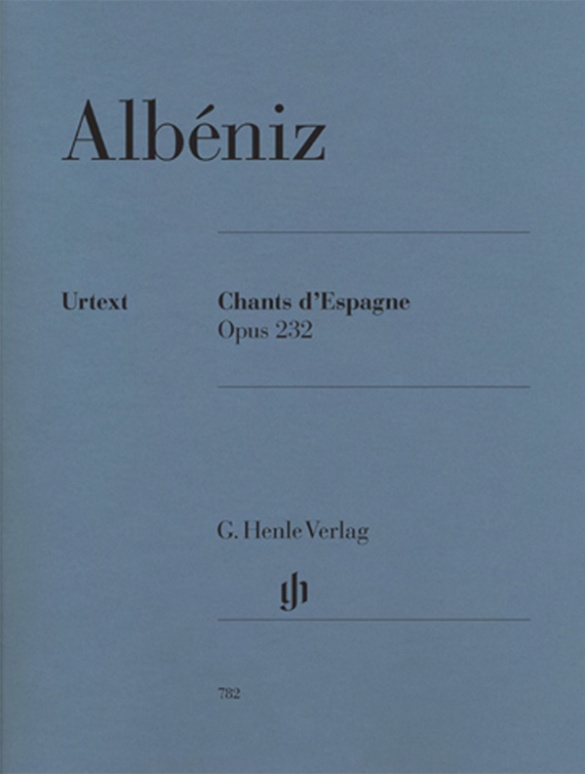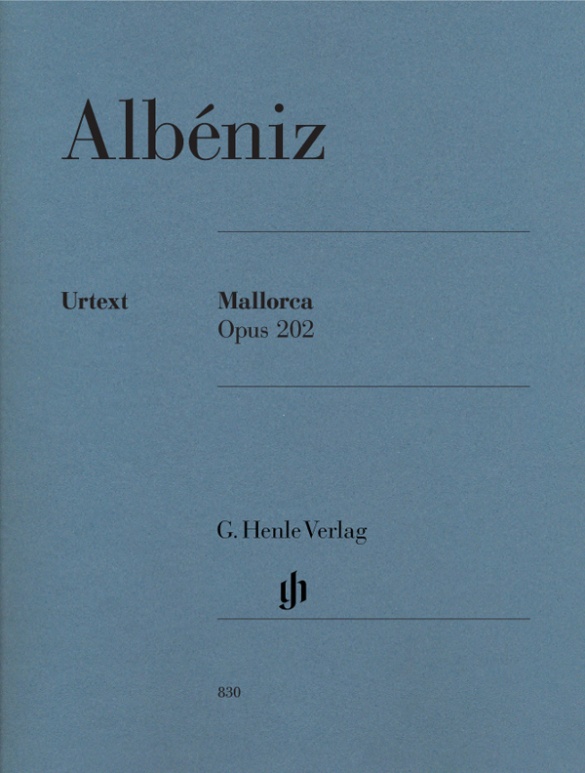

Isaac Albéniz
Iberia · Second Book
The first book of Albéniz’ four-part cycle “Iberia” has already been published in an acclaimed Henle Urtext edition and many pianists are now eagerly awaiting the remaining ones. The second book in this collection of melodious portraits of Spanish places is now available. In “Rondeña”, “Almería” and “Triana” Albéniz once again fuses his knowledge of European classical music with elements of Spanish folk music, although he hardly ever directly cites the latter, but rather reinvents it in an authentic manner. The rhythmic and colourful effects will delight both players and listeners.
Read more about this edition in the Henle Blog.
Content/Details
About the Composer

Isaac Albéniz
He numbers among the most important Spanish composers. His oeuvre consists predominantly of piano music and stage works.
| 1860 | Born in Camprodón (Gerona province) on May 29; soon thereafter his family moves to Barcelona; first piano instruction with his sister at age three and a half, first public performance at age five, subsequent piano studies with Narciso Oliveras. |
| from 1867 | Eventful youth due to concert tours with his father and sister to Paris, the Spanish provinces, then on his own to Puerto Rico and Cuba. |
| 1876–79 | Studies in Brussels. |
| 1883–86 | Studies composition in Barcelona with Felipe Pedrell, who persuades him of the value of Spanish folk music. This results in piano compositions such as “Recuerdos de viaje,” Op. 71 (1886–87); “España: Seis hojas de album,” Op. 165 (1890); “Cantos de España,” Op. 232 (1891–94). |
| 1889 | Breakthrough as a pianist, concertizing in Paris and London. |
| 1890–93 | Engaged in London by the agent Henry Lowenfeld; operetta “The Magic Opal” (premiere 1893). |
| 1893 | Relocation to Paris, studies with Vincent d’Indy and Paul Dukas. |
| 1895/96 | Premieres in Barcelona of his operas “Henry Clifford” (1895) and “Pepita Jiménez” (1896) with Spanish colorings in the libretti and music. |
| 1898–1903 | He plans the trilogy “King Arthur” (“Merlin,” “Lancelot,” “Guenevere”), of which just “Merlin” is completed; concert performance of the original version does not take place until 1998. |
| 1905–08 | Composes “Iberia,” one of his chief works for piano, in which he reworks the sounds and rhythms of Spanish folk music. |
| 1909 | Death in Cambô-les-Bains (Basses-Pyrénées) on May 18. |
About the Authors

Norbert Gertsch (Editor)
Dr. Norbert Gertsch, born in 1967 in Rheinkamp/Moers, studied piano solo at the Mozarteum in Salzburg and read musicology and philosophy at the Paris Lodron University in Salzburg and the Ruperto Carola University Heidelberg on a scholarship from the “Studienstiftung des Deutschen Volkes”. In 1996 he wrote his doctoral thesis on Ludwig van Beethoven’s Missa solemnis (as part of the New Complete Edition) under Ludwig Finscher.
In the following year, he began to work at G. Henle Publishers, initially as an editor for electronic publishing. After working on a two-year project (1999–2000) sponsored by the German Research Foundation (DFG) preparing a new Beethoven Catalogue of Works, he became a scholarly editor at G. Henle Publishers. In 2003 he became Editor-in-Chief, in 2009 Deputy Managing Director and Head of Publishing. As of 1 January 2024, the Executive Board of the Günter Henle Foundation has appointed Dr. Norbert Gertsch, as the new managing director, succeeding Dr. Wolf-Dieter Seiffert.
Gertsch has published many Urtext editions for G. Henle Publishers, including volumes for a new edition of Beethoven’s Piano Sonatas together with Murray Perahia.
Product Safety Informations (GPSR)

G. Henle Verlag
Here you can find the information about the manufacturer of the product.G. Henle Verlag e.K.
Forstenrieder Allee 122
81476 München
Germany
info@henle.de
www.henle.com
Der Notensatz ist lobenswert übersichtlich und es gibt vor Ort hilfreiche Erläuterungen, die eine Einstudierung ohne lästiges Nachschlagen ermöglichen.
Neue Musikzeitung, 2010El mayor logro es la fusión que hace de diferentes fuentes, ediciones y de las correcciones del compositor no incluidas anteriormente. Es un texto ideal, que si bien nunca existió, resulta más aclarador y completo. … Un valcío colmado.
Doce Notas, 2008Non più appannaggio esclusivo degli spagnoli, dunque, il lascito di Albéniz trova collocazione nell’ambito di prestigiose Urtextausgabe internazionali per cercare spazio fra interpreti dell’intero globo …
Giornale della Musica, 2007De nieuwe Urtext is zonder meer een fenomenale prestatie. De complexiteit is vertaald naar een goed leesbare partituur, aangevuld met een uitgebreide bronvermelding en een verklarende tabel van voordrachts- en tempoaanduidingen.
Pianowereld, 2007recommendations
autogenerated_cross_selling
Further editions of this title




